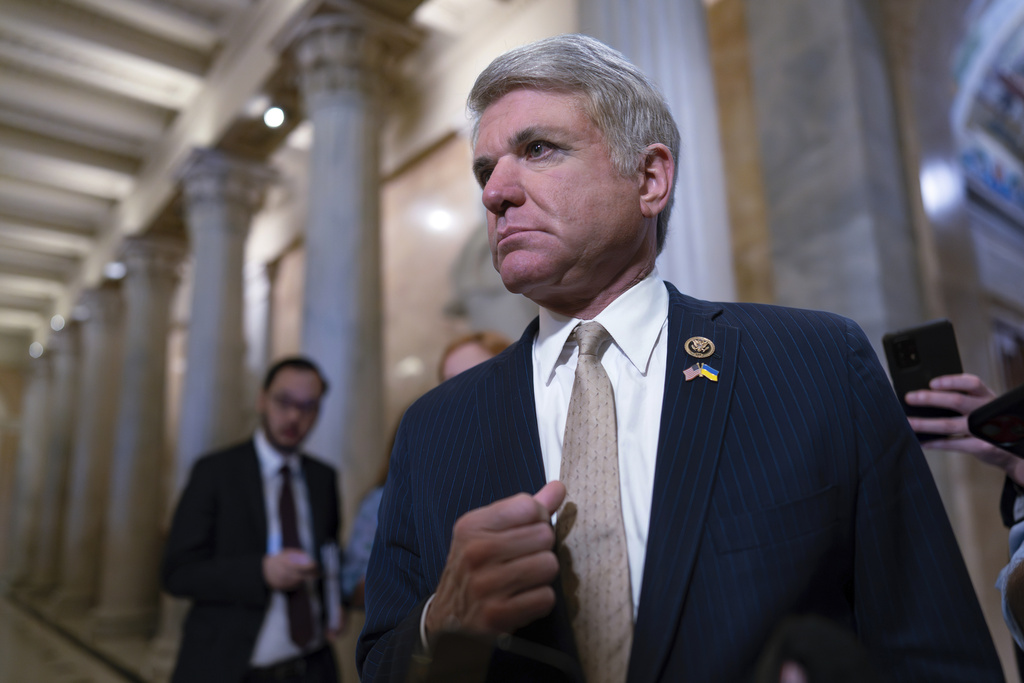EXCLUSIVE — House Foreign Affairs Committee Chairman Michael McCaul (R-TX) has called on the Biden administration to take more significant action against Iran for its “ongoing nuclear provocation.”
McCaul sent a letter to Secretary of State Antony Blinken on Friday expressing his position that the United States should advance a formal finding of Iran’s non-compliance with the Nuclear Non-Proliferation Treaty and seek a referral to the United Nations Security Council at next week’s International Atomic Energy Agency Board of Governors meeting.
“The administration must take swift and urgent action to directly address Iran’s ongoing nuclear provocation,” McCaul wrote in the letter, which the Washington Examiner obtained. “This must go beyond previous censures, including those adopted by the [Board of Governors] in 2022.
“The administration must advance a formal finding of Iran’s noncompliance with its NPT-related Comprehensive Safeguards Agreement and seek a referral of Iran to the United Nations Security Council at the upcoming BOG meeting,” McCaul’s letter continued. “The credibility of the global non-proliferation rests on the IAEA’s ability to successfully carry out its mandate, including with respect to Iran’s nuclear program.”

A recent IAEA report found that while Iran’s stockpile of near nuclear-grade uranium has reduced since October 2023, the amount of uranium it has that had been enriched to 20% or higher has increased, according to CNN.
“Washington must support the IAEA director general and push for a censure resolution calling on Iran to end its nuclear activities and cooperate with the agency,” said Anthony Ruggiero, the senior director of the Foundation for Defense of Democracies for Nonproliferation and Biodefense Program. “If the United States remains silent, Tehran will move one step closer to a nuclear weapon.”
The meeting comes weeks after Ali Akbar Salehi, a former Iranian foreign affairs minister, indicated that Tehran has all it needs to build a nuclear weapon.
Iran is “presenting a face which is not entirely transparent when it comes to its nuclear activities,” IAEA Director General Rafael Grossi said at the World Governments Summit in Dubai, United Arab Emirates, last month. “Of course this increases dangers. There’s loose talk about nuclear weapons more and more, including in Iran recently. A very high official said, in fact, ‘We have everything, it’s disassembled.’ Well, please let me know what you have.”
CLICK HERE TO READ MORE FROM THE WASHINGTON EXAMINER
Uranium needs to be enriched above 90% to be considered weapons-grade, while anything above 20% is considered highly enriched, according to the Center for Arms Control and Non-Proliferation.
The Biden administration initially sought to reenter the 2015 Iran nuclear agreement, which then-President Donald Trump pulled out of in 2018. The administration is no longer pursuing such a deal.
Then-Under Secretary of Defense for Policy Colin Kahl warned U.S. lawmakers that it would take Iran about 12 days to produce one bomb’s worth of fissile material, whereas in 2018, it would have taken about a year.
